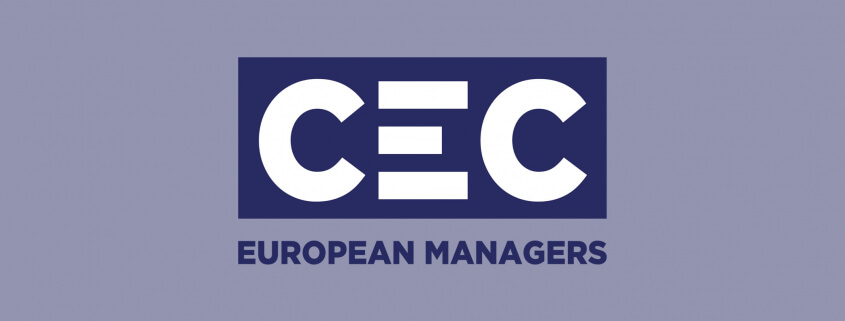Tripartite Social Summit – Speech of Ludger Ramme, President – October 2015
The speech of Ludger Ramme, President of CEC European Managers, at the Tripartite Social Summit on 15 October 2015.
Dear President Tusk,
Dear President Juncker,
Dear Commissioner Thyssen,
Dear colleagues,
My name is Ludger Ramme and I am President of CEC European Managers. I have the honor to speak on behalf of the CEC and Eurocadres Liaison Committee. Eurocadres are representing the managerial and professional staffs inside the ETUC unions whereas CEC is an independent confederation gathering managers and executive staff throughout Europe, composed of 16 national organizations and 9 sectoral federations. CEC and Eurocadres together count for more than six million highly skilled employees and both defend the interests of this professional category. At European level, CEC and Eurocadres take part in the social dialogue on equal footing and on the terms of a cooperation agreement since 1999 within the ETUC delegation.
This meeting has a particular importance for the social partners, as it represents the opportunity to convey our message concerning the state of social Europe at the highest institutional level. But let me first briefly touch on the issue of the refugee crisis: an event that is forcing our countries and societies reconsider their position within the globalized world from a different perspective. Later today, the European Council will be discussing more in depth about migration and the political position Europe will adopt on it. We believe that Europe must face this phenomenon, with a strong common position based on intra-European and external solidarity.
Many European economies have started to show firmer signs of recovery, although some of the most meaningful socio-economic indicators still demonstrate how lasting the effects of the crisis are being for several European countries. This is more closely the case for unemployment figures, and in particular those concerning long-term and youth unemployment. It is now vital for Europe to regain its productive capacity, taking advantage of the upcoming integration of digital and communication technologies into objects (“internet of things”) and, more in general, of the diffusion of new productive methods that are associated with the growing application of 2.0 and 3.0 technologies.
The adaptation to these new working patterns needs to be accompanied by a well-functioning social dialogue. Those who are more closely concerned by decisions on employment and employment-related issues must be considered by the legislator as privileged, first-degree partners in law-making. The acknowledgment of the special role of social partners can be seen in our opinion as one of the many applications of the “subsidiarity” principle; a reason more to demand that such a special role does not simply remain a Treaty-based statement, but can be applied and respected in all its aspects, including that of autonomy.
To be worthy of this role, social partners have to demonstrate their capacity and willingness to produce tangible results, thus stressing their representativeness and the legitimacy of their requests. Progress in this respect can be incremental (as it often is), but must be visible and noticeable. With the launch of a “new start” for EU social dialogue last March, the European Commission has proven its real intention to give a renewed, reinforced impetus to the action of social partners. I was present at the high-level conference at the Charlemagne building; and I could witness myself the enthusiasm from both the institutional and the social partners’ side for the prospect of a new season of great advancement of social Europe. We now look forward to the next steps and appointments of this relaunch process, to which we are ready to participate.
As far as managers of Europe are concerned, we are committed to providing our contribution to the dialogue between the active economic and social forces of our countries, playing also at this level the same role we play on the workplace: to serve as facilitator between the needs and expectations of employees and employers, strengthening mutual trust and helping them better understand the position of one another. We are ready to provide our expertise and our competences like we do in our countries, where (fully involved in the domestic social dialogue) we contribute responsibly to the development of the society taking on our social duties as ruling class, in a spirit of cooperation and in the interest of a well-functioning and solid European economic and social model. This is a goal I am convinced we all share, irrespective of the role we play around this table.
I thank you very much for your attention and wish us all a very constructive debate.



